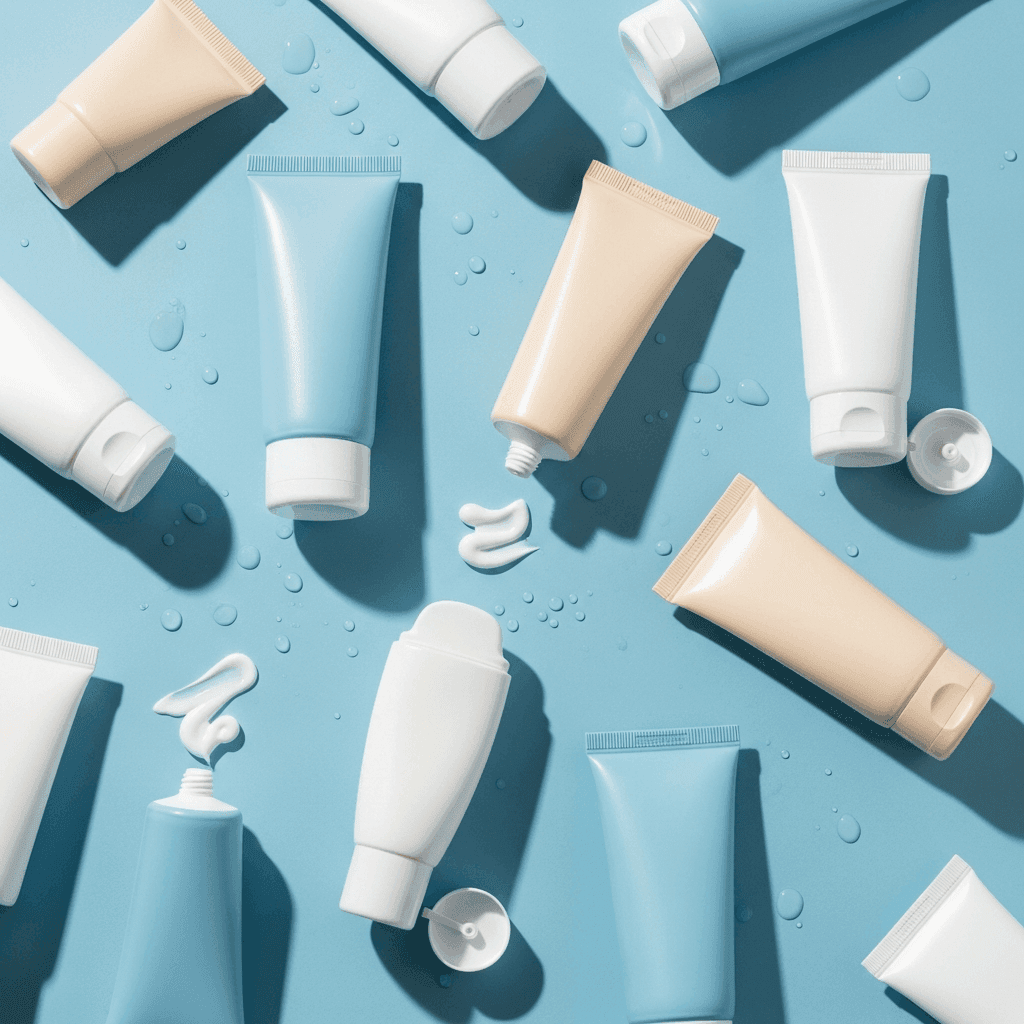The 5 Best Sunscreens for Oily & Acne-Prone Skin (Tested 2025)

For anyone with oily or acne-prone skin, the word "sunscreen" usually evokes a sense of dread. I remember it well. It was the image of a thick, pasty, white layer that felt like an occlusive mask, guaranteed to make my face shine in ten minutes and, almost certainly, leave a new pimple behind as a souvenir the next day.
My turning point came when I realized the acne marksI was working so hard to treat with Retinoidsat night were getting darker during the day. The culprit? Unprotected sun exposure. I was sabotaging all my own hard work. I realized I had no choice: I had to find a sunscreen I could wear every day, and I went on a personal mission to find "the one."
Why Trust This Guide? I Spent My Own Money So You Don't Have To
This list is the result of that obsessive quest. I have personally tested every single product on this list for weeks at a time. My criteria were non-negotiable: it had to be non-comedogenic, feel lightweight, not leave my face a greasy mess, and, most importantly, not cause a single breakout. These are the formulas that passed my rigorous exam.
Quick Comparison: My Finalists
The 5 Best Sunscreens for Oily Skin in Detail
1. The Holy Grail: EltaMD UV Clear Broad-Spectrum SPF 46
My Experience:This is my daily driver, the one I recommend most. Honestly, it feels more like a skin treatment than a sunscreen. It's an incredibly lightweight, oil-free lotion that contains 5% Niacinamide, so it actively calms redness and inflammation while it protects. It has never caused a breakout and is the product that made me believe daily sunscreen was possible for me.
Best For:Absolutely everyone, but especially those looking to reduce the redness associated with acne.
2. The Invisible Mattifier: La Roche-Posay Anthelios Clear Skin Sunscreen SPF 60
My Experience:This is my go-to for the most brutal, humid summer days. If shine is your main enemy, this is your champion. The texture is unique; it comes out as a cream but dries down to a truly matte, almost powder-like finish that absorbs oil for hours. It works incredibly well as a mattifying primer.
Best For:Very oily skin types who want a shine-free finish that lasts all day.
3. The Cosmetic Masterpiece: Supergoop! Unseen Sunscreen SPF 40
My Experience:This stuff is magic in a bottle. It's a completely transparent, weightless, silicone-based gel that feels like nothing on the skin. It's oil-free, leaves zero white cast, and creates a smooth, velvety canvas that makeup glides over beautifully. Its cosmetic elegance is unmatched.
Best For:Anyone who truly hates the feeling of sunscreen and wants an invisible option that doubles as a fantastic makeup primer.
4. The Gentle Mineral Option: Hero Cosmetics Force Shield Sunscreen SPF 30
My Experience:From the makers of the Mighty Patch, this 100% mineral sunscreen was literally designed with acne-prone skin in mind. What I love is its unique, subtle green tint that instantly helps to color-correct some of the redness from my active breakouts. It’s gentle, never stings, and feels calming on days my skin is feeling sensitive.
Best For:Sensitive, acne-prone skin and those who strictly prefer mineral (zinc oxide) formulas.
5. The Drugstore Gem: Neutrogena Hydro Boost Water Gel Sunscreen SPF 50
My Experience:This proves you don't need to spend a lot for an elegant formula. It delivers high SPF protection in a refreshing water-gel texture that feels hydrating but not heavy at all. It’s oil-free and non-comedogenic, and I find that the burst of Hyaluronic Acidactually helps to balance my skin by giving it the water it needs.
Best For:A budget-friendly, hydrating option for all skin types, especially combination.
Frequently Asked Questions (FAQ)
If my sunscreen is hydrating, do I still need a separate moisturizer? From my experience, for most people, the answer is yes. I always apply a lightweight, oil-free moisturizer first, let it sink in, and then apply my sunscreen. I think of the moisturizer as skincare and the sunscreen as my shield. On the very oiliest of summer days, a hydrating sunscreen like the Neutrogena mightbe enough, but I generally recommend both steps.
Are mineral or chemical sunscreens better for acne-prone skin? I've had success with both, so I don't think there's a strict rule. Mineral sunscreens (specifically Zinc Oxide) are naturally anti-inflammatory, which can be very soothing. Chemical sunscreens often have lighter, more cosmetically elegant textures. The most important factor isn't the filter type; it's finding a formula that is labeled "non-comedogenic" and that you love wearing daily.
Why is sunscreen soimportant for fading my acne marks? I learned this the hard way. Sun exposure triggers melanin production. This makes those red or brown post-acne marks (Post-Inflammatory Hyperpigmentation) get darker and stick around for months, or even years, longer than they should. Daily sunscreen use is the single most crucial step to help them fade faster and prevent them in the first place.
Final Thoughts
With these incredible formulas, there's no longer an excuse to skip sunscreen. The days of goopy, pore-clogging messes are over. You can finally give your skin the protection it needs to stay healthy, clear, and youthful without fearing the grease or the breakouts. It's a true game-changer.